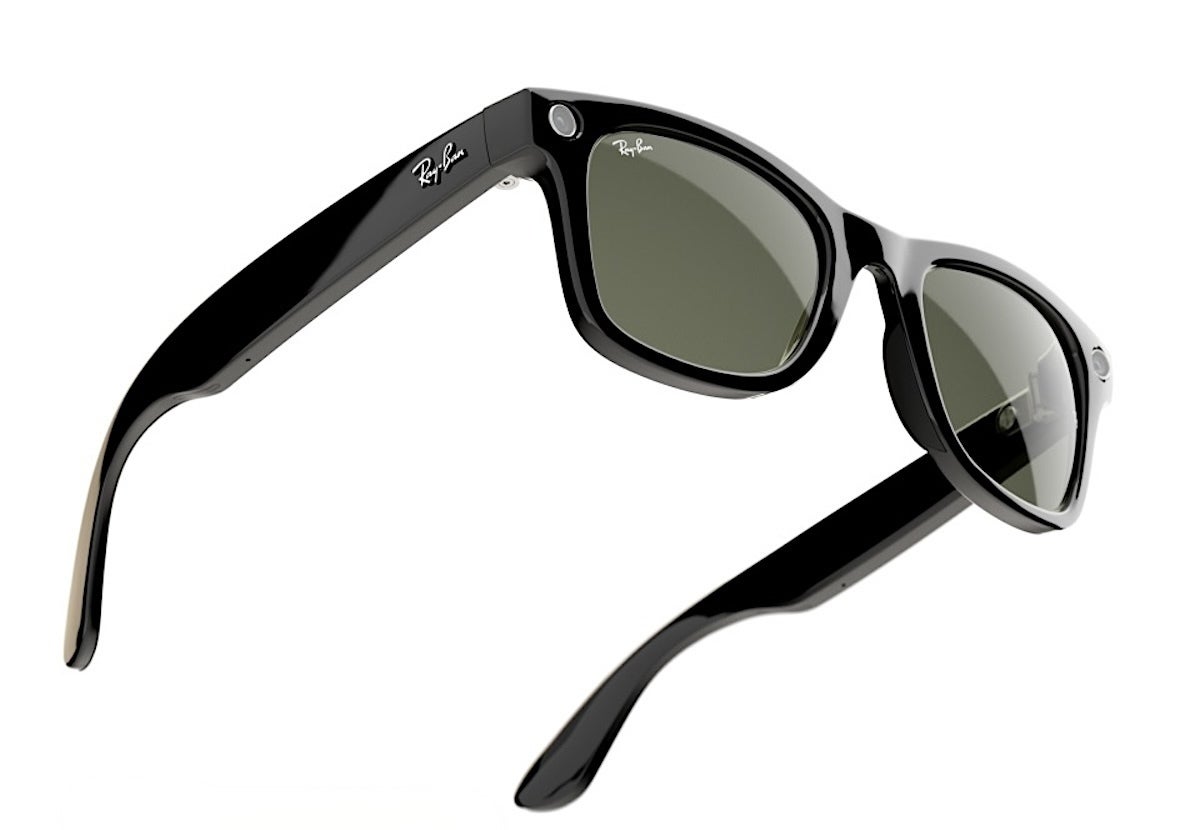The affordable Vision Pro augmented reality application developed by Apple is set to be released in the first quarter of 2024. However, the real buzz is around the emergence of AI glasses as the main attraction by the end of the year. Hold on, what’s that?
Indeed, the sleeper hit of the year will be glasses that allow users to engage with artificial intelligence directly from their own eyewear. There is already a growing interest in Meta among business leaders.
Initially, the introduction of Ray-Ban Meta glasses in September and their subsequent release in October didn’t create much excitement. They were perceived as just another set of virtual assistant glasses akin to Amazon’s Echo Frames or camera glasses like Snap Sunglasses. However, it became evident over time that Ray-Ban Meta glasses, priced at $299, offered superior features compared to their predecessors. With enhanced camera capabilities, top-notch audio quality, live-streaming options, and a sophisticated AI assistant, these glasses stood out from the crowd.
Despite a lukewarm reception at launch, Ray-Ban Meta glasses gained traction online in December due to several key developments.
Firstly, Meta introduced the “multimodal” feature, which allows users to capture images with the glasses’ camera and send them to the Meta Assistant for analysis using voice commands. This seamless blend of visual and spoken interaction with Meta’s AI is truly groundbreaking.
Secondly, technology journalists began recognizing the revolutionary potential of Ray-Ban Meta glasses, sparking enthusiasm among consumers and industry experts alike.
Thirdly, despite the initial limitation of live-streaming only to Facebook and Instagram, Ray-Ban Meta glasses gained popularity on platforms like TikTok, expanding their reach and appeal.
In the realm of AI eyewear products, there are already several options available. For instance, Lucyd Lyte Smart Eyewear Powered with ChatGPT and Solos AirGo 3 offer different experiences with AI integration. Amazon’s latest iteration of Echo Frames and other upcoming products indicate a growing trend towards AI-powered wearables.
The unique form factor of glasses sets them apart from other wearables, offering a discreet and convenient way to interact with AI throughout the day. The combination of style, functionality, and comfort makes AI glasses a compelling choice for consumers.
As the market for AI glasses continues to evolve, competition is expected to intensify with the entry of major players like Google, Microsoft, OpenAI, and potentially Apple. Each company aims to deliver a seamless and high-quality AI glasses experience to users, catering to diverse preferences and needs.
The future of AI glasses looks promising, with Meta setting a high standard for innovation and user experience. As the technology landscape shifts towards wearable AI devices, consumers can expect a wide range of options tailored to their preferences and lifestyle choices.






